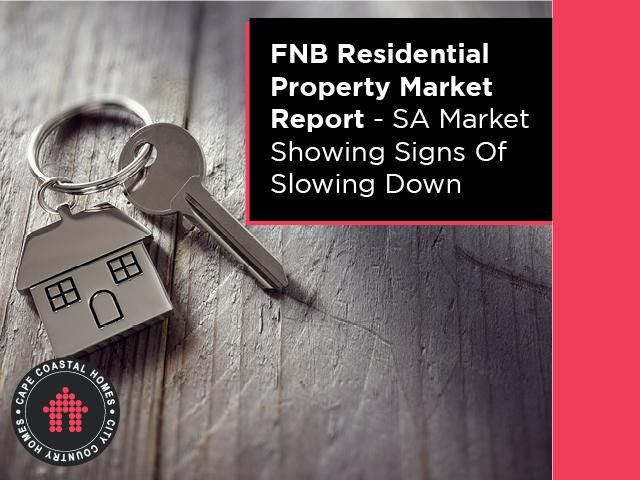FNB Residential Property Market Report - SA Market Showing Signs Of Slowing Down
According to FNB's September 2021 edition of its Residential Property Barometer, demand in the residential property market may be slowing down following its strong rebound during late 2020 and early 2021.
While a further deceleration in annual house price growth to 2.6% y/y was reported in August 2021 (from 3.4% in July 2021), levels remain above the figures reported in 2019. Mortgage extensions are growing at a rapid pace with most credit allocated to the middle and upper-priced segments and as such, mortgage loan sizes have become bigger, reflecting a shift in activity to higher value properties.
According to FNB Senior Economist, Siphamandla Mkhwanazi, this slow pace of price growth coincides with the widening demand gap (weakening market strength index) as demand growth slows relative to supply
Estate agent activity is also moderating across price segments as shown in FNB's latest Estate Agents Survey. However, these are all still above 2019 levels despite weaker employment numbers, suggesting that market activity is still benefiting from lower interest rates with current activity also benefitting from pandemic-induced shifts in consumer behaviour which leant in favour of home ownership.
Mortgage extension in July rose by 7.2% y/y, the fastest in twelve years since May 2009. This seems at odds with all demand and market activity indicators, a conundrum compounded by the fact that loan-to-value (LTV) rations have also descended from their recent highs during 2020's fourth quarter.
To explain this, the first thing to consider is growth in house prices in recent months.
According to the FNB House Price Index (HPI), prices have risen by a cumulative 5.6% since January 2020. Second, and related to this, is the average loan size. Deeds registry data shows that this has become bigger, growing by 14.6% in the same period. In a similar vein, internal applications data shows the average purchase price has risen by 14.5% between January 2020 and July 2021 (Figure 4). This is partly driven by higher house prices, and a demand-shift towards higher price brackets, facilitated by very low interest rates.
Mkwanazi also indicated that while volumes and loan-to-price ratios may be slowing, which would imply slowing mortgage extension, the rise in purchase prices and loan sizes might have counteracted this, explaining the uptrend.
He also pointed out that FNB has consistently argued that property rates have been unusually slow to adjust to the weak consumer fundamentals. We explained that support has come from unprecedented factors, such as historically low interest rates, the nature of the crisis - which incentivised property ownership - the concerted response from lenders that smoothed the impact of severe job losses on housing markets (e.g., through payment holidays and loan restructuring) as well as the relative abundance of credit despite these job losses. However, recent data shows that market volumes may have peaked, and market strength is weakening i.e., the demand gap is widening.
Nevertheless, these remain above 2019 levels. Thematically, the recent deceleration in house price growth is in line with FNB's expectations - reflecting waning interest-rate induced demand and swelling labour market pressures. Demand driven by consumer shifts from renting to owning may also have peaked. This is reflected in the stabilising flat vacancy rates and bottoming rental inflation. These shifts played a vital role in supporting home-buying activity in 1H20 and into 2021, mostly in middle-priced segments. With this demand losing momentum, it is not surprising that the deceleration in house prices is more pronounced in middle-priced segments.
Mkwanazi concluded that FNB still expects a better annual house price growth in 2021, reflecting comparatively stronger demand and a brighter GDP growth outlook.

